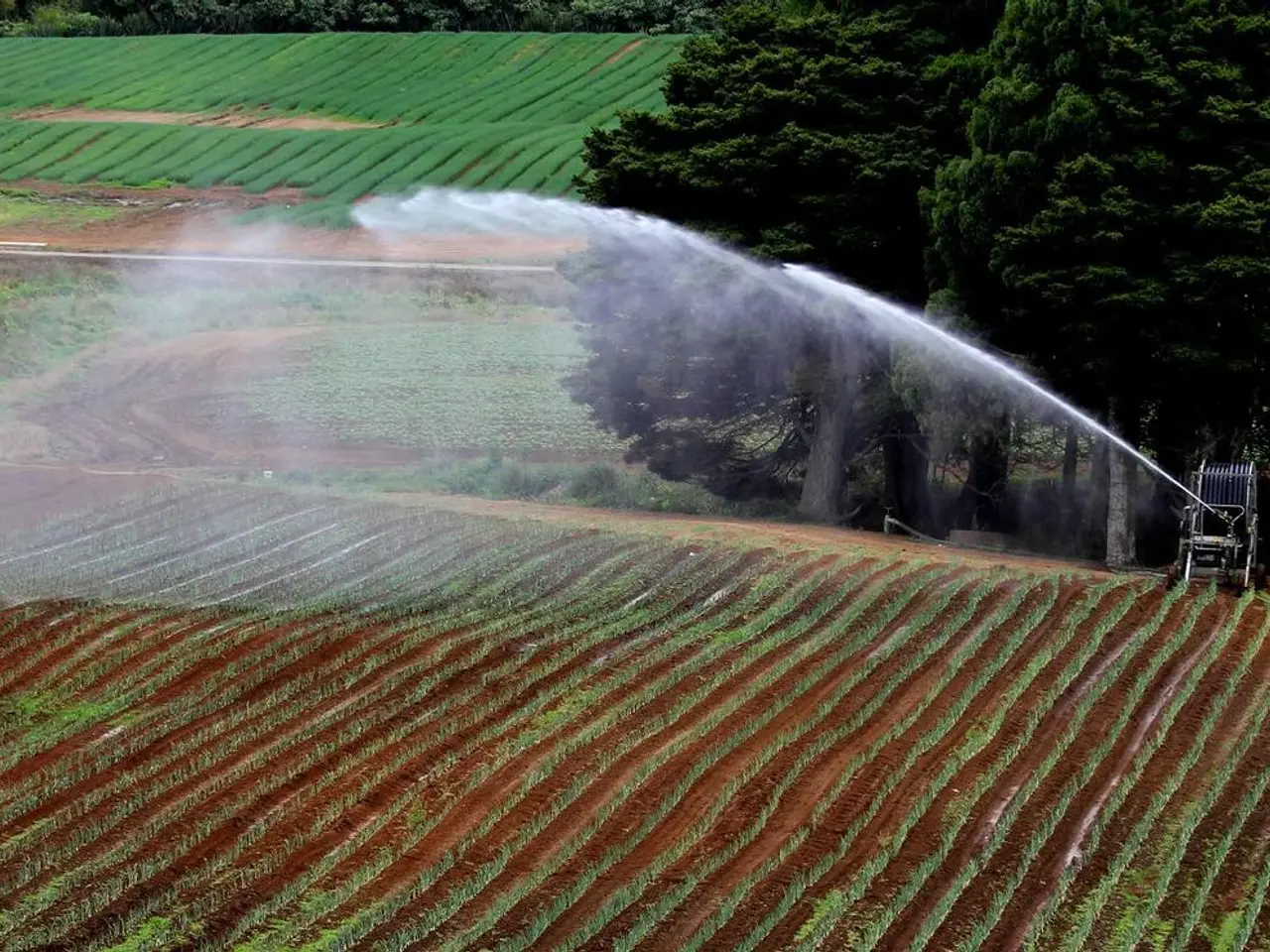Artificial Intelligence’s Impact on Traditional Industries Shaping Them into Eco-friendly Sectors
Artificial Intelligence (AI) is making significant strides in revolutionizing traditional industries, such as agriculture and manufacturing, by improving operational efficiency, sustainability, and product quality.
AI in Manufacturing
Major companies are demonstrating how AI is reshaping manufacturing operations. General Electric (GE) embedded AI across industrial systems, analysing turbine and engine data, leading to a 12% improvement in energy output per unit of fuel and a 5-7% reduction in greenhouse gas emissions, thereby advancing their sustainability goals [1].
Toyota uses AI-driven computer vision to monitor operators and production line flow, achieving a 15% reduction in repetitive strain injuries and a 10% increase in line efficiency without requiring wearable sensors [1]. BMW implemented AI for visual quality control, reducing defect rates by 32% and inspection time by 28%, enabling higher throughput with improved product quality [1].
Additional manufacturing examples include AI-powered predictive maintenance systems, which analyse sensor data (e.g., vibration in steel plant machinery) to forecast equipment failures weeks in advance, thus minimising costly downtime and repair expenses [2]. Human-robot collaboration, where AI-guided robots operate in hazardous environments to gather data, keeping human workers safe [2], is another application. AI also optimises supply chains by forecasting disruptions and recommending alternative logistics routes [2].
AI in Agriculture
In agriculture, AI applications focus on precision farming and autonomous machinery. John Deere’s “See & Spray” system detects weeds via AI and applies herbicides only where necessary, substantially reducing chemical use and enhancing environmental sustainability [4]. Autonomous tractors and harvesters equipped with GPS and sensors operate independently to perform field tasks more efficiently, optimising resource utilisation and farm productivity [4].
AI agents analyse data from sensors, satellites, and drones to monitor soil health, crop conditions, and irrigation needs, enabling farmers to maximise yields while minimising waste and environmental impact [4].
These case studies illustrate how AI is transforming traditional industries by enabling smarter decision-making, reducing environmental footprints, and improving safety and efficiency at scale [1][2][4].
A Promising Future
The evolution of AI points towards a future where it can foster sustainable growth across various sectors. Ongoing advancements in AI, such as improved algorithms and more accessible computing resources, are lowering the barriers to adoption, opening up new pathways for innovation and growth [3].
A balanced perspective is crucial when navigating the complexities of integrating AI into traditional industries, recognising both the immense potential and the challenges ahead [5]. The author emphasises the need to approach the journey of integrating AI into traditional industries with a thoughtful, evidence-based approach [5].
The role AI can play in transforming traditional industries for the better is optimistic, with a thoughtful, evidence-based approach [6]. Stakeholders can develop frameworks to mitigate risks associated with data privacy, workforce displacement, and the digital divide in the adoption of AI in traditional industries [6].
The integration of AI into traditional industries can chart a course towards a more sustainable and prosperous future [7]. By leveraging insights gained from past experiences and ongoing research, we can harness the power of AI to achieve immediate goals and lay the groundwork for enduring success and sustainability [8].
The future holds promise for a convergence of technology and tradition, creating a more sustainable world [9].
[1] Toyota
[2] McKinsey & Company
[3] IBM
[4] John Deere
[5] Our Website
[6] Our Website
[7] Our Website
[8] Our Website
[9] Our Website
- Artificial Intelligence (AI) can also contribute to environmental science by improving climate-change models through data analysis and pattern recognition, aiding in the understanding and prediction of global warming trends [3].
- In the realm of science, AI models are being developed to aid in the study of complex biological systems, such as the human genome, by identifying patterns and making predictions that would ordinarily take years to accomplish [4].
- The integration of artificial intelligence in environmental-science research, as well as in the study of science and climate-change, can open up new possibilities for innovation and technological advancement, ultimately leading to a more sustainable world [5].
[3] IBM
[4] Our Website
[5] Our Website




